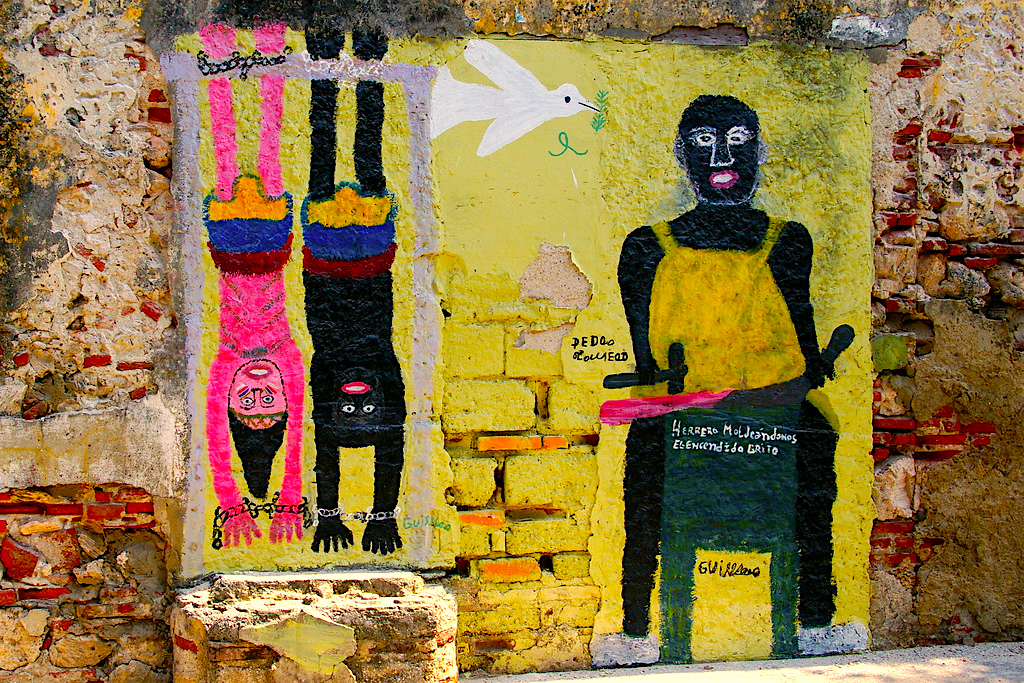When Refugees Are Terrorized By the German Right Wing

On December 7, 2015, two baby carriages were set on fire at an apartment complex housing refugees in the pristine Thuringia town of Altenburg. Ten refugees, including two infants, suffered from smoke inhalation. The attack came two days after right-wing protesters marched through the town carrying signs that read, “Please continue your flight. There's nowhere to live here.”
“On the ground floor there was a woman living with her baby who had to jump out without shoes,” district administrator Michaele Sojka told me when I met her last June. “Everyone was really shocked that something like that could happen in our city.
Two men were arrested, and six months later one of them was found guilty of arson. The judge said the man had “acted on xenophobic motives.” The other was handed a fine for repeating Nazi slogans. “One of them must have been drunk that night,” Brit Krostewitz, a volunteer with the Altenburg Network for Integration, told me. “They are just stupid Nazis.” Most Germans know the type.
This is Germany, a country whose leaders just 80 years ago tried to deport and then exterminate all non-Christians and “outsiders.” A country so ashamed of its xenophobic past that to display any hint of nationalism, such as to wave a German flag during a soccer match, remained taboo. Germany, a liberal European state that goes so far as to limit speech—by criminalizing Holocaust denial—least anyone attempt to forget or manipulate that torrid past.
And yet, Germany has recently become a breeding ground for small pockets of xenophobic citizens to commit hate crimes and terrorism against foreigners. Following the arrival of more than a million asylum seekers since 2015, the news that made the biggest headlines detailed the handful of terrorist attacks or assaults by immigrants in Germany against native Germans, such as the hundreds of alleged mass thefts and sexual assaults that occurred in cities like Cologne, Hamburg and Dusseldorf during 2015’s New Year’s Eve celebrations.
But far less reported are the much larger number of arsons, assaults, harassment and other attacks that have been committed by Germans against refugees. Germany doesn’t quantify the number of attacks committed by immigrants, but according to a document written by Germany’s Interior Ministry, there were more than 3,500 attacks against refugees or refugee homesteads last year. [1] That’s up from an estimated 1,000 attacks in 2015, which itself was five times the number of attacks on refugees that occurred a year earlier. [2]
Altenburg is a microcosm of the way in which this anti-immigrant rhetoric and violence has manifested. By late 2015, in Sojka’s estimate, a bus of refugees was arriving here nearly every week. At the time of the attack, the district that surrounds the town was home to 1,300 refugees among a population of just 92,000.
The first thing that concerned the residents of Altenburg was the manner of their arrival. “When you cross a border, usually you have a lot of control, a lot of rules,” said Sojka. But in the fall of 2015, “there were 12,000 people coming over the borders each day.”
“This is what caused worry among the citizens. They said, ‘How can you handle it?’” Sojka recalled. “I would call the response a complete failure for the state—letting all the people in, without rules.”
Lack of rules can be a compelling and even legitimate fear for Germans concerned about how the arrival of so many people might affect them. But a small cadre found an outlet for their worries at demonstrations that took place across Germany by the far-right nationalist movement PEGIDA, or Patriotic Europeans Against the Islamisation of the West.
Some of the protesters’ grievances clearly resonated in the town. PEGIDA may have spawned an environment in which even moderate Germans can air grievances that they previously would have kept to themselves. When you see 2,500 people walking through your town denouncing refugees, it becomes easier for someone to come to the conclusion that making a racist remark or committing some minor act of violence might not be so far out of bounds.
Krostewitz, who leads a medical center for refugees, said this change in atmosphere became blatantly apparent in the town. Krostewitz was walking home from a café one night with four Syrian men she’d been meeting with, when the door to a grocery store opened and someone from inside yelled, “You black bastards, go away.”
Such racist remarks might be expected in a place like Donald Trump’s America. But how did they bubble to the surface in the last place on earth that racism was supposed to make a comeback? Most of us think of Germany as this shamed but reconciled country, where the atrocities brought about by racism and xenophobia are on display everywhere so that they will never happen again. But mainstream German political parties may have overlooked the long-hidden currents of angst that existed in Germany but were until now rarely expressed.
The same way xenophobia found a home in America among the Tea Party, and later, the Republican Party, in Germany too, anti-immigrant sentiments are now finding refuge in mainstream politics. Increasingly that refuge comes in the form of the Alternative fuer Deutschland (AfD), the conservative political party that beat Chancellor Angela Merkel’s Christian Democratic Union in one federal state during regional elections last September.
If the AfD wins enough seats in this year’s federal elections, one AfD leader who has been criticized for his statements denouncing the politicization of the Holocaust may be elected to a ceremonial position in the Bundestag: Wilhelm von Gottberg, who once wrote that "The genocide against European Jews continues to be used as an effective tool to criminalise Germans and their history.”
The AfD provides a political outlet for PEGIDA sympathizers and many moderate Germans who disagree with Germany’s welcoming policy toward refugees. Just as with the alt-right in the U.S., right-wingers in Germany exaggerate the threat posed to their nation by Muslims, while downplaying the fact that there is racism directed against them.
Such displays of xenophobia are, unfortunately, a common consequence of global migration. The arrival of more than a million asylum seekers to Germany in just two short years would provoke such a reaction. Whether Germany will do a better job than America at relegating such xenophobia to the fringes of society remains to be seen. For Germany’s refugees, the more urgent question at hand is, after fleeing violence or ethnic rivalries at home, will they find protection here in Germany from those who find their presence unwelcome?
This is the first part of a short series on refugees in Germany.
Jacob Kushner is the author of China’s Congo Plan and writes about migration, development, and foreign aid issues in Africa, the Caribbean and Germany.
Reporting for this story was funded by a fellowship from the American Council on Germany.
[1] http://www.tagesspiegel.de/politik/gewalt-gegen-asylbewerber-3500-angriffe-auf-fluechtlinge-im-vergangenen-jahr/19443722.html

